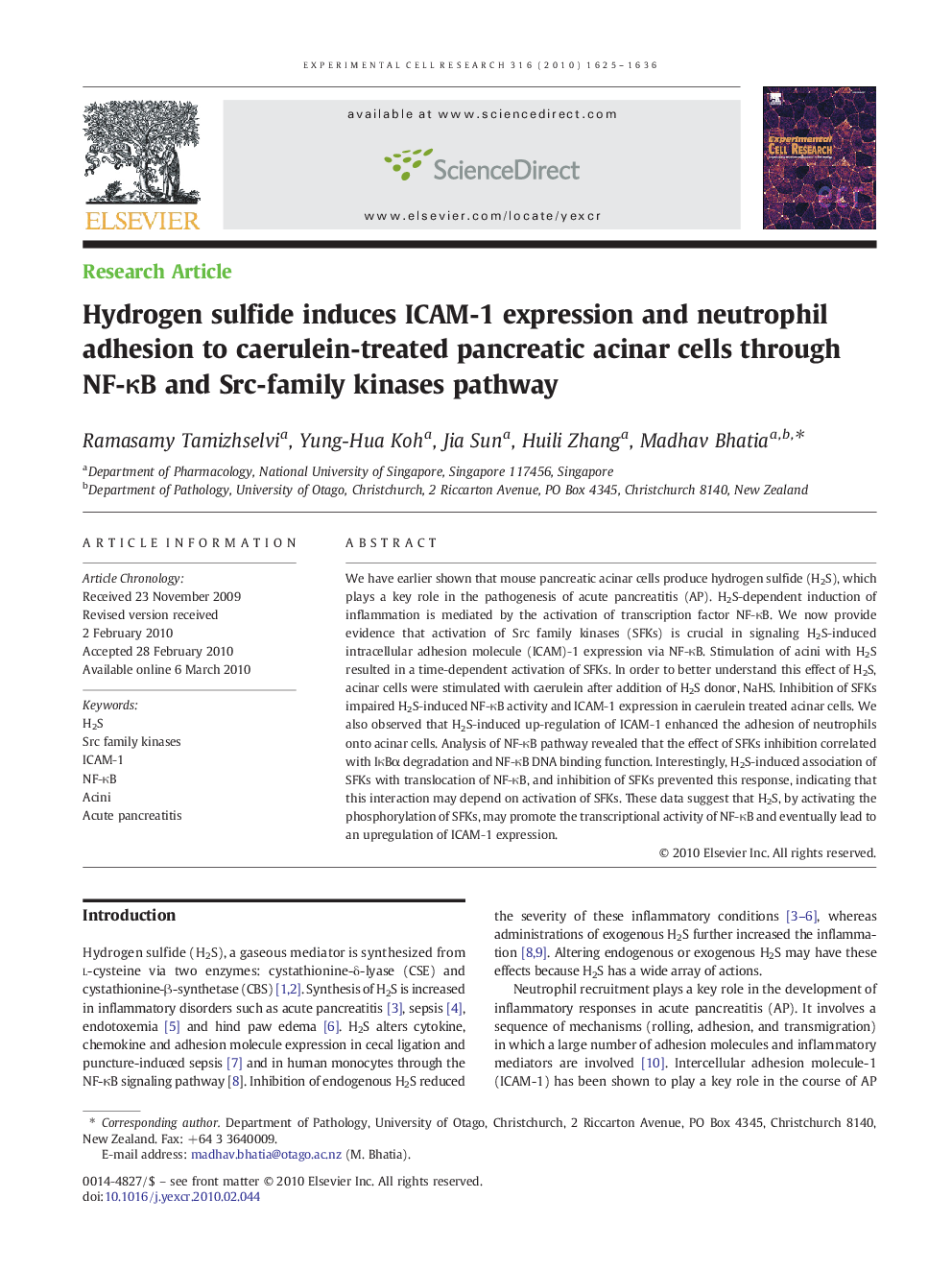| Article ID | Journal | Published Year | Pages | File Type |
|---|---|---|---|---|
| 2131321 | Experimental Cell Research | 2010 | 12 Pages |
We have earlier shown that mouse pancreatic acinar cells produce hydrogen sulfide (H2S), which plays a key role in the pathogenesis of acute pancreatitis (AP). H2S-dependent induction of inflammation is mediated by the activation of transcription factor NF-κB. We now provide evidence that activation of Src family kinases (SFKs) is crucial in signaling H2S-induced intracellular adhesion molecule (ICAM)-1 expression via NF-κB. Stimulation of acini with H2S resulted in a time-dependent activation of SFKs. In order to better understand this effect of H2S, acinar cells were stimulated with caerulein after addition of H2S donor, NaHS. Inhibition of SFKs impaired H2S-induced NF-κB activity and ICAM-1 expression in caerulein treated acinar cells. We also observed that H2S-induced up-regulation of ICAM-1 enhanced the adhesion of neutrophils onto acinar cells. Analysis of NF-κB pathway revealed that the effect of SFKs inhibition correlated with IκBα degradation and NF-κB DNA binding function. Interestingly, H2S-induced association of SFKs with translocation of NF-κB, and inhibition of SFKs prevented this response, indicating that this interaction may depend on activation of SFKs. These data suggest that H2S, by activating the phosphorylation of SFKs, may promote the transcriptional activity of NF-κB and eventually lead to an upregulation of ICAM-1 expression.
